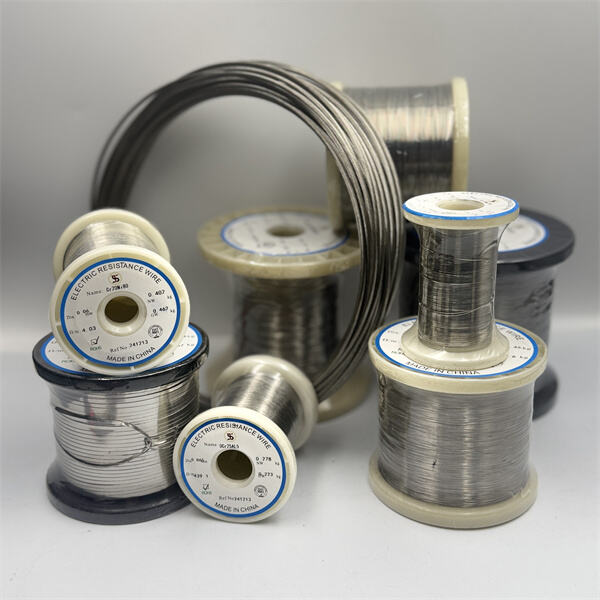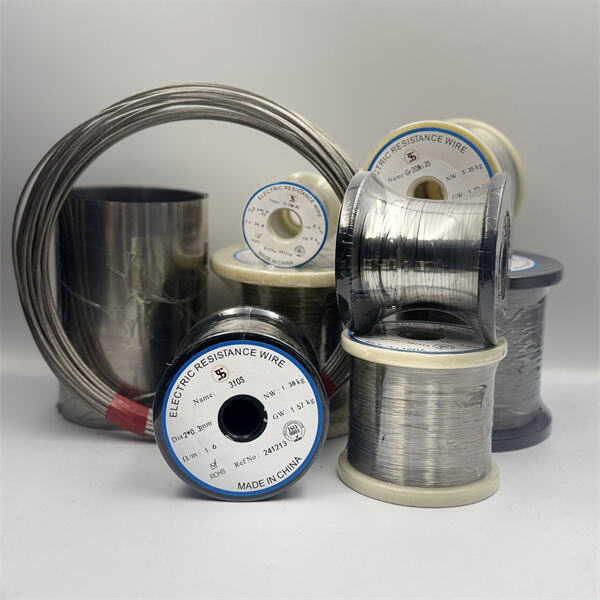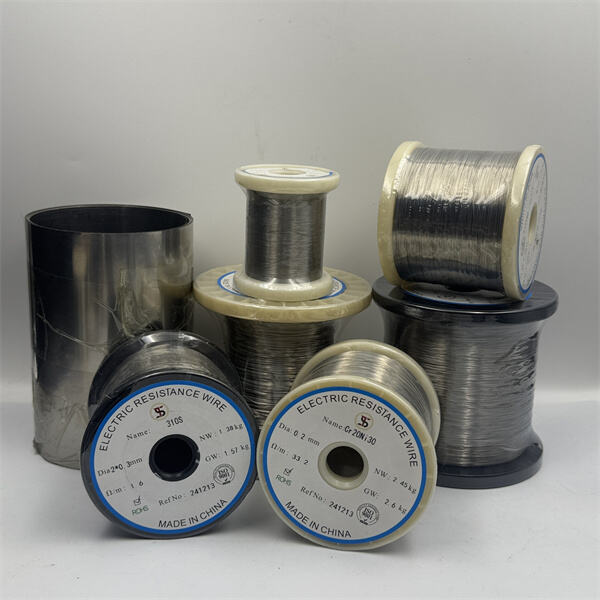Make wires connecting the world.
The resistance of a wire is affected by a number of key factors. Let’s start with the type of wire or material. Other materials, such as silver and copper, are excellent at allowing electricity to flow through them. These TS Heating Alloy materials offer low resistance, making it easier for electricity to flow through them. There are other materials, however, such as rubber and plastic, that do not conduct electricity at all, or very well. These materials have a high resistance, which means it is difficult for electricity to easily flow through them.
The thickness, or gauge, of the wire is also a crucial factor that affects fire resistance wire. More thickness of wires are good conductors for electricity than less thickness. This is due to the greater space that electricity has to travel in thicker wires. It probably helps to imagine the difference between a wide road and a narrow road; it is easier, more cars can smoothly transit a wide road than a narrow one. Similarly, thicker wires let more electricity pass through without getting stuck.
To understand how size and length affect resistance, let’s think of wires similar to a water hose. With a short and wide hose, water moves through it very easily. This large opening has no problem letting a lot of water flow through. But with a long, thin hose you have to push harder to make the water flow. The narrow aperture restricts the rate at which water can flow, and the length of the attachment only increases its difficulty.
Wires work the same way. Because a thicker wire has more room for electricity to flow through, it takes less "pressure" to get it moving. This "pressure" is analogous to voltage: that is, what pushes electricity through wires. But with a longer wire, there’s more thick wire resistance, and so you need a higher voltage to push the electricity through it. It’s like needing to apply a stronger push to get the water moving through that long, skinny hose.

Now, let’s move on to conductivity. Conductivity is a description of how well a material allows electricity to flow through. High conductivity means that separate materials, such as copper, silver and gold, conduct electricity well. These materials enable electricity to flow freely and easily. Then there are the non-conductors like rubber and plastic that hardly conduct electricity at all. These TS Heating Alloy materials are poor conductors of electricity meaning they resist its flow.

In electrical engineering electric resistance wire is really, really important. It is the same concept that engineers use to develop electrical systems that are effective and safe. It is actually the common thinking that while engineers are preparing a circuit for a light bulb they need to use that much resistance of the wire. If the wire has far too resistance, it may possibly even stop the bulb from lighting up. But if the wire has too little resistance, it might get too hot, which can certainly be dangerous and may even start a fire.

A cooling example of wire resistance at work is in heating systems. Companies such as TS Heating Alloy manufacture heating components found in a range of devices like ovens and water heaters. These heating components are specifically engineered to have the precise resistance needed to generate the heat required for each application. If the resistance isn't "just right," the appliance wouldn't run properly or would be unsafe.
Since its establishment in 2023, TS Heating Alloy Materials Co., Ltd has expanded its international footprint through strong trading partnerships. Our products are now successfully exported to regions such as Japan, South Korea, Southeast Asia, Europe, and Africa, with an emphasis on fostering long-term relationships. By continuing to develop the TS Heating Alloy brand globally, we aim to increase recognition and expand our presence in international markets, offering high-performance alloy materials to customers worldwide.These four points highlight TS Heating Alloy Materials Co., Ltd's strengths, showing its commitment to quality, customer service, and global expansion.
Located in Taizhou, Jiangsu, China, TS Heating Alloy Materials Co., Ltd benefits from its proximity to Shanghai Port, one of the world's busiest shipping hubs. This strategic location facilitates efficient international shipping, allowing us to offer timely delivery to markets across Asia, Europe, North America, and Africa. Our logistics capabilities ensure that we can meet global demand quickly and reliably, making us an ideal partner for companies looking for high-quality alloy wire products with fast turnaround times.
With dozens of material types available, TS Heating Alloy Materials Co., Ltd offers a broad selection of resistance wire and steel wire rope products. This variety ensures that we meet the specific needs of diverse industries, from construction to specialized sectors requiring resistance wire ropes. Our ability to supply both standard and custom-made solutions makes us a one-stop shop for businesses worldwide, providing versatility and flexibility to cater to various market demands.
TS Heating Alloy Materials Co., Ltd is equipped with cutting-edge technology, including wire drawing machines, annealing furnaces, and packing machines. This ensures that every product, from raw materials to finished items, meets stringent quality standards. The company’s production processes are designed for precision and reliability, enabling the manufacturing of high-quality resistance wires and steel wire ropes. Whether it's Fe-Cr-Al or Ni-Cr wire, our products are crafted with care and expertise, ensuring optimal performance in various industrial applications.